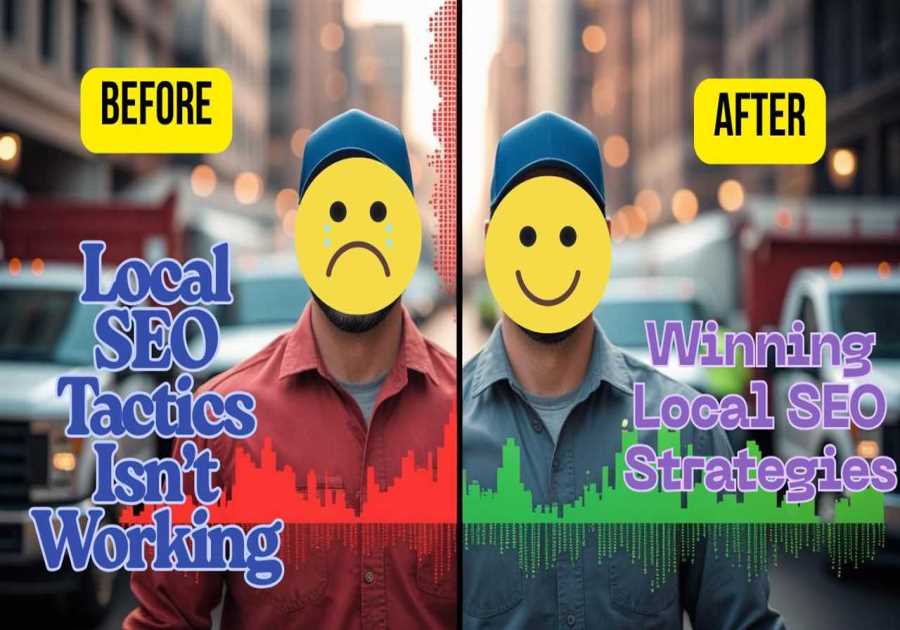
Let’s be honest: when people first heard about AI search, most rolled their eyes. Another hype cycle, right? That’s what many marketers thought. But the data tells a different story. AI-driven platforms like ChatGPT are not just novelty tools; they’re sending traffic that converts at 4.4 times the revenue value of Google’s search traffic.
Yes, you read that right—4.4 times.
And here’s the kicker: very few companies are competing for this traffic right now. That means a rare first-mover advantage exists—something we haven’t seen since the early days of Google itself.
I’ve spent years in marketing, watching trends come and go, but this one is different. This isn’t about hype; it’s about a paradigm shift in how people find, evaluate, and act on information. And the businesses that adapt early will own the next decade of online visibility.
Google vs. ChatGPT: A Shift in Power
Everyone’s still playing by the Google playbook. Optimize keywords, build backlinks, publish evergreen blog posts. But while marketers are polishing their SEO strategy, AI search has quietly evolved into something far more sophisticated.
Here’s what’s changed:
- Traditional Google checks your domain authority and backlinks.
- AI Search looks at how you’re mentioned across the internet, in what context, and whether you’re trustworthy in real conversations.
- Traditional Google wanted keyword optimization.
- AI Search rewards actual answers—clear, specific, and contextual.
- Traditional Google ranked pages with algorithms.
- AI Search uses comprehension to understand intent and deliver human-like responses.
Think of it this way. When someone asks Google, “Best project management software,” they get a list of 10 blue links. When someone asks ChatGPT, “What are the best project management tools for remote teams of 50?” they get a personalized, contextualized recommendation in seconds—pulled from trusted blogs, Wikipedia, case studies, and news articles.
This is search evolved. More human. More useful. And undeniably faster.
The Numbers Don’t Lie
Skeptical? Let’s look at the stats.
- ChatGPT queries have surged past 1 billion per day, while Google processes about 13.7 billion. The gap is narrowing fast.
- Businesses optimizing for AI search report 72.5% engagement rates, compared to 60.4% from Google SEO traffic.
- Visitors from ChatGPT spend 2 minutes and 13 seconds on-site, versus 1 minute and 37 seconds from Google users.
So why does this matter? Because engaged traffic means buyers, not browsers. People using AI search are often closer to making decisions, not just browsing casually.
The Four ChatGPT Visibility Factors
If AI search is rewriting the rules, how do you show up? After analyzing thousands of AI-driven recommendations across industries, four consistent factors emerged:
- Authority Signals (Beyond Domain Authority)
Forget obsessing over DA. AI cares about citations from Wikipedia, respected blogs, and credible news. Our analysis of 500,000 ChatGPT queries showed:
- Wikipedia: 20% of citations
- Blogs: 19%
- News sources: 17%
Vendor pages? Just 2%.
- Content Intelligence
AI rewards content that answers questions directly, with structure it can parse. Think: scannable headers, clear answers, and original research. - Specificity Strategy
Broad topics like “Best CRM” won’t cut it. AI search favors ultra-specific answers: “Best CRM for manufacturing companies with 100 sales reps.” The narrower, the better. - Reputation Network
It’s not just how often you’re mentioned, but how you’re described. Context matters more than volume. In AI’s eyes, a single well-positioned mention can outweigh dozens of weak ones.
Case Study: HubSpot’s AI Domination
Take HubSpot. They didn’t just stumble into AI visibility—they engineered it.
Instead of a few generic CRM pages, HubSpot built hundreds of ultra-specific pages:
- CRM for real estate teams under 50 people
- CRM for SaaS startups in year one
- CRM for manufacturing companies
They created bottom-of-funnel content—not “What is a CRM?” but “Here’s why HubSpot is the best CRM for your exact scenario.” Then, they amplified this through digital PR and authentic community engagement.
Now, when people ask ChatGPT about CRMs, HubSpot is the default answer. Customers literally call saying, “ChatGPT told me you were the best.” That’s not just SEO. That’s owning the recommendation layer of the internet.
The 3-Step ChatGPT Traffic System
So how do you replicate this? Here’s the roadmap:
Step 1: Get AI’s Attention
- Create citation-worthy content backed by proprietary data, surveys, or case studies.
- Format it clearly for AI parsing: scannable, structured, direct.
- Don’t forget Bing Webmaster Tools—ChatGPT relies on Bing’s index.
Step 2: Expand Your Authority
- Build mentions through digital PR and guest posts.
- Show up authentically on Reddit, Quora, and forums—not as spam, but as an expert.
- Craft comparison content that highlights your product in context.
Step 3: Own Your Space
- Scale ultra-specific content with AI tools.
- Monitor mentions across the web and track your visibility.
- Test monthly by asking ChatGPT your industry’s top questions—see if you’re recommended.
This isn’t a quick hack. Expect 3–6 months to see substantial results. But the upside? While most competitors don’t even know this game exists, you can quietly secure the territory before they arrive.
Why AI Search Is the New SEO
AI search isn’t “coming.” It’s here. And for once, the playing field is wide open.
If you’ve ever felt like you missed the early days of Google SEO—when ranking was simpler, faster, and cheaper—this is your second chance.
Just like consumers use an average of 6.6 social networks per month, they’re now spreading their searches across ChatGPT, Claude, Perplexity, Copilot, and more. Each represents a new entry point, a new funnel, and a new way to capture attention.
The businesses that embrace this evolution will future-proof their traffic streams. Those that don’t? They’ll watch as AI quietly replaces their Google rankings as the go-to discovery channel.
So the question is simple: Do you want to be found by AI—or forgotten by it?
Final Thoughts
Search has always been about connecting people with solutions. But now, it’s less about who shouts the loudest on Google and more about who shows up in the trusted answers AI gives back.
If ChatGPT is already sending traffic worth 4.4x more than Google, imagine what the next five years will look like.
The clock is ticking. The opportunity is here. And for once, the playing field is level. The businesses that seize it today will own tomorrow.
If you found this article helpful, please share it so others can benefit too. Be sure to keep an eye out for more upcoming posts packed with powerful SEO tips and strategies. In the meantime, feel free to explore our other articles to deepen your knowledge and stay ahead of the curve: SEO in the Age of AI: How to Learn and Win in Today’s Search Landscape






